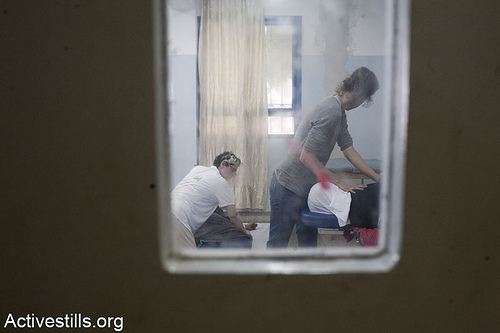Israeli Health Care Facilities Lack Required Translators, Cultural Sensitivity




Most health care facilities in Israel do not comply with the Ministry of Health's February 2013 directive mandating linguistic accessibility. As a result, Arab women, immigrants from Ethiopia and Russia, and the elderly are forced to look for assistance from family members or others to understand medical information and treatments, if they approach medical facilities at all.
The Ministry of Health (MOH)'s directive requiring health care institutes to make health care services linguistically and culturally accessible to all cultural groups in Israeli society came into force in February 2013. The directive is part of the MOH's work to reduce health care disparities between groups in Israel. However, cultural and linguistic accessibility have still not improved.
Organizations appeal to Ministry of Health for clarification
In an appeal to Israel's 40 major health care institutions, Adalah, the Forum for Immigrant Families, Emun Hatzibur - Public Trust, and Tabeka objected to the continued lack of accessible health care services. They demanded clarification the facilities' actions to comply with the new regulations and laws, including the Patients' Rights Law.
New requirements for translation of all material, interpreter availability
Reform requirements include interpreters available for doctor-patient interaction, translation of all health care documents, forms, signs, and websites, and translation at call centers. Moreover, the directive requires health care institutes to offer training for all medical staff and administrators on about linguistic and cultural sensitivity.
Current system inaccessible for many
In the appeal, the organizations note that the Israeli health care system currently fails large sectors of the population that speak limited Hebrew, such as Arab-Bedouin women, Russian immigrants, especially the elderly, and members of the Ethiopian community. This prevents these groups from obtaining adequate health care.
Many are forced to seek help of family members, who are often minors, or friends, neighbors, and even bystanders. These helpers are not qualified to translate health care information. Further, revealing personal and intimate information to one's relatives, including children, causes embarrassment and humiliation.
Finally, these patients are usually requested to sign Hebrew-language consent forms which they do not understand.
Better cultural and linguistic support must be implemented immediately.
The appeal was signed by Attorney Sawsan Zaher of Adalah, Marina Zaminski of the Forum for Immigrant Families, Ronen Regev-Cabir of Emun Hatzibur, and Attorney Tali Degen of Tabeka.
 Photo by ActiveStills for Adalah's NGO Partner Physicians for Human Rights - Israel, used under a Creative Commons license.
Photo by ActiveStills for Adalah's NGO Partner Physicians for Human Rights - Israel, used under a Creative Commons license.














